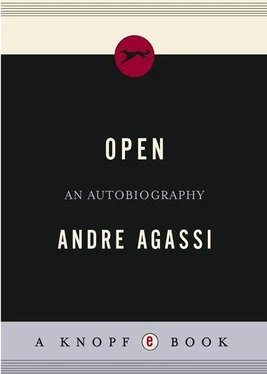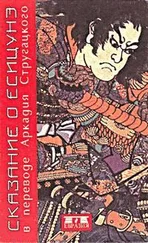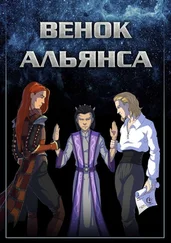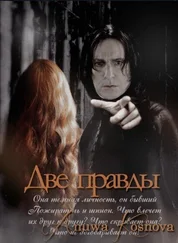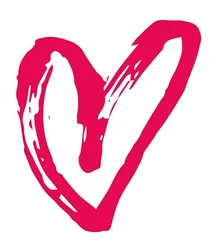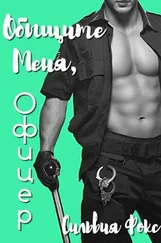Unknown - i a3f9967826fa0ec9
Здесь есть возможность читать онлайн «Unknown - i a3f9967826fa0ec9» весь текст электронной книги совершенно бесплатно (целиком полную версию без сокращений). В некоторых случаях можно слушать аудио, скачать через торрент в формате fb2 и присутствует краткое содержание. Жанр: Старинная литература, на английском языке. Описание произведения, (предисловие) а так же отзывы посетителей доступны на портале библиотеки ЛибКат.
- Название:i a3f9967826fa0ec9
- Автор:
- Жанр:
- Год:неизвестен
- ISBN:нет данных
- Рейтинг книги:5 / 5. Голосов: 1
-
Избранное:Добавить в избранное
- Отзывы:
-
Ваша оценка:
- 100
- 1
- 2
- 3
- 4
- 5
i a3f9967826fa0ec9: краткое содержание, описание и аннотация
Предлагаем к чтению аннотацию, описание, краткое содержание или предисловие (зависит от того, что написал сам автор книги «i a3f9967826fa0ec9»). Если вы не нашли необходимую информацию о книге — напишите в комментариях, мы постараемся отыскать её.
i a3f9967826fa0ec9 — читать онлайн бесплатно полную книгу (весь текст) целиком
Ниже представлен текст книги, разбитый по страницам. Система сохранения места последней прочитанной страницы, позволяет с удобством читать онлайн бесплатно книгу «i a3f9967826fa0ec9», без необходимости каждый раз заново искать на чём Вы остановились. Поставьте закладку, и сможете в любой момент перейти на страницу, на которой закончили чтение.
Интервал:
Закладка:
1
I’M SEVEN YEARS OLD, talking to myself, because I’m scared, and because I’m the only person who listens to me. Under my breath I whisper: Just quit, Andre, just give up. Put down your racket and walk off this court, right now. Go into the house and get something good to eat. Play with Rita, Philly, or Tami. Sit with Mom while she knits or does her jigsaw puzzle.
Doesn’t that sound nice? Wouldn’t that feel like heaven, Andre? To just quit? To never play tennis again?
But I can’t. Not only would my father chase me around the house with my racket, but something in my gut, some deep unseen muscle, won’t let me. I hate tennis, hate it with all my heart, and still I keep playing, keep hitting all morning, and all afternoon, because I have no choice. No matter how much I want to stop, I don’t. I keep begging myself to stop, and I keep playing, and this gap, this contradiction between what I want to do and what I actually do, feels like the core of my life.
At the moment my hatred for tennis is focused on the dragon, a ball machine modified by my fire-belching father. Midnight black, set on big rubber wheels, the word PRINCE painted in white block letters along its base, the dragon looks at first glance like the ball machine at every country club in America, but it’s actually a living, breathing creature straight out of my comic books. The dragon has a brain, a will, a black heart—and a horrifying voice. Sucking another ball into its belly, the dragon makes a series of sickening sounds. As pressure builds inside its throat, it groans. As the ball rises slowly to its mouth, it shrieks. For a moment the dragon sounds almost silly, like the fudge machine swallowing Augustus Gloop in Willy Wonka & the Chocolate Factory. But when the dragon takes dead aim at me and fires a ball 110 miles an hour, the sound it makes is a bloodcurdling roar. I flinch every time.
My father has deliberately made the dragon fearsome. He’s given it an extra-long neck of aluminum tubing, and a narrow aluminum head, which recoils like a whip every time the dragon fires. He’s also set the dragon on a base several feet high, and moved it flush against the net, so the dragon towers above me. At seven years old I’m small for my age. (I look smaller because of my constant wince and the bimonthly bowl haircuts my father gives me.) But when standing before the dragon, I look tiny. Feel tiny. Helpless.
My father wants the dragon to tower over me not simply because it commands my attention and respect. He wants the balls that shoot from the dragon’s mouth to land at my feet as if dropped from an airplane. The trajectory makes the balls nearly impossible to return in a conventional way: I need to hit every ball on the rise, or else it will bounce over my head. But even that’s not enough for my father. Hit earlier, he yells. Hit earlier.
My father yells everything twice, sometimes three times, sometimes ten. Harder, he says, harder. But what’s the use? No matter how hard I hit a ball, no matter how early, the ball comes back. Every ball I send across the net joins the thousands that already cover the court.
Not hundreds. Thousands. They roll toward me in perpetual waves. I have no room to turn, to step, to pivot. I can’t move without stepping on a ball—and yet I can’t step on a ball, because my father won’t bear it. Step on one of my father’s tennis balls and he’ll howl as if you stepped on his eyeball.
Every third ball fired by the dragon hits a ball already on the ground, causing a crazy sideways hop. I adjust at the last second, catch the ball early, and hit it smartly across the net. I know this is no ordinary reflex. I know there are few children in the world who could have seen that ball, let alone hit it. But I take no pride in my reflexes, and I get no credit. It’s what I’m supposed to do. Every hit is expected, every miss a crisis.
My father says that if I hit 2,500 balls each day, I’ll hit 17,500 balls each week, and at the end of one year I’ll have hit nearly one million balls. He believes in math. Numbers, he says, don’t lie. A child who hits one million balls each year will be unbeatable.
Hit earlier, my father yells. Damn it, Andre, hit earlier. Crowd the ball, crowd the ball.
Now he’s crowding me. He’s yelling directly into my ear. It’s not enough to hit everything the dragon fires at me; my father wants me to hit it harder and faster than the dragon. He wants me to beat the dragon. The thought makes me panicky. I tell myself: You can’t beat the dragon. How can you beat something that never stops? Come to think of it, the dragon is a lot like my father. Except my father is worse. At least the dragon stands before me, where I can see it. My father stays behind me. I rarely see him, only hear him, day and night, yelling in my ear.
More topspin! Hit harder. Hit harder. Not in the net! Damn it, Andre! Never in the net!
Nothing sends my father into a rage like hitting a ball into the net. He dislikes when I hit the ball wide, he yells when I hit a ball long, but when I muff a ball into the net, he foams at the mouth. Errors are one thing, the net is something else. Over and over my father says: The net is your biggest enemy.
My father has raised the enemy six inches higher than regulation, to make it that much harder to avoid. If I can clear my father’s high net, he figures I’ll have no trouble clearing the net one day at Wimbledon. Never mind that I don’t want to play Wimbledon. What I want isn’t relevant. Sometimes I watch Wimbledon on TV with my father, and we both root for Björn Borg, because he’s the best, he never stops, he’s the nearest thing to the dragon—but I don’t want to be Borg. I admire his talent, his energy, his style, his ability to lose himself in his game, but if I ever develop those qualities, I’d rather apply them to something other than Wimbledon. Something of my own choosing.
Hit harder, my father yells. Hit harder. Now backhands. Backhands.
My arm feels like it’s going to fall off. I want to ask, How much longer, Pops? But I don’t ask. I do as I’m told. I hit as hard as I can, then slightly harder. On one swing I surprise myself by how hard I hit, how cleanly. Though I hate tennis, I like the feeling of hitting a ball dead perfect. It’s the only peace. When I do something perfect, I enjoy a split second of sanity and calm.
The dragon responds to perfection, however, by firing the next ball faster.
Short backswing, my father says. Short back—that’s it. Brush the ball, brush the ball.
At the dinner table my father will sometimes demonstrate. Drop your racket under the ball, he says, and brush, brush. He makes a motion like a painter, gently wafting a brush. This might be the only thing I’ve ever seen my father do gently.
Work your volleys, he yells—or tries to. An Armenian, born in Iran, my father speaks five languages, none of them well, and his English is heavily accented. He mixes his Vs and Ws, so it sounds like this: Vork your wolleys. Of all his instructions, this is his favorite. He yells this until I hear it in my dreams. Vork your wolleys, vork your wolleys.
I’ve vorked so many wolleys I can no longer see the court. Not one patch of green cement is visible beneath the yellow balls. I slidestep, shuffling like an old man. Finally, even my father has to admit there are too many balls. It’s counterproductive. If I can’t move we won’t make our daily quota of 2,500. He revs up the blower, the giant machine for drying the court after it rains. Of course it never rains where we live—Las Vegas, Nevada—so my father uses the blower to corral tennis balls. Just as he did with the ball machine, my father has modified a standard blower, made it into another demonic creature. It’s one of my earliest memories: five years old, getting pulled out of kindergarten, going with my father to the welding shop and watching him build this insane lawnmower-like machine that can move hundreds of tennis balls at once.
Читать дальшеИнтервал:
Закладка:
Похожие книги на «i a3f9967826fa0ec9»
Представляем Вашему вниманию похожие книги на «i a3f9967826fa0ec9» списком для выбора. Мы отобрали схожую по названию и смыслу литературу в надежде предоставить читателям больше вариантов отыскать новые, интересные, ещё непрочитанные произведения.
Обсуждение, отзывы о книге «i a3f9967826fa0ec9» и просто собственные мнения читателей. Оставьте ваши комментарии, напишите, что Вы думаете о произведении, его смысле или главных героях. Укажите что конкретно понравилось, а что нет, и почему Вы так считаете.
